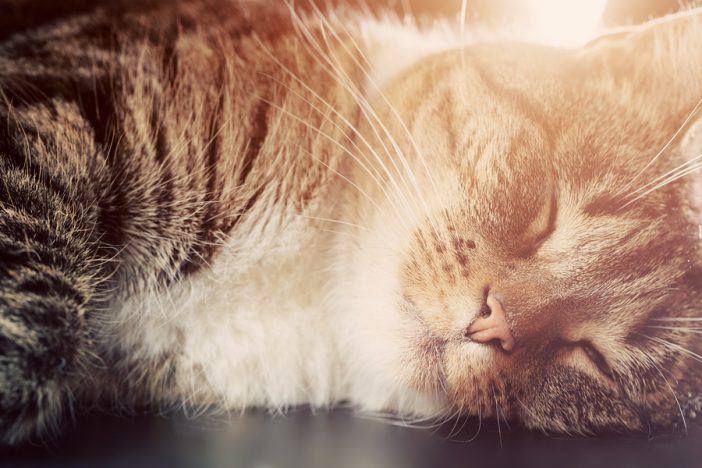
“I don’t know how you do this. It must be so hard.”
Inevitably, a client will say this to me when I come to their home to euthanize their pet. My stock answer (which is completely true) is that I’m a basket case when it comes to losing my own pets, so if I can make that miserable process even a little bit easier for someone else, it’s worth it.
Over the years, I’ve heard comments about vets who don’t cry when they euthanize a pet. Remarks range from those about strength and control to those about coldness and lack of feeling. I can’t speak for all of us, but here’s how it works for me.
Calm by Necessity
When I euthanize a pet, I am on stage. Everything has to be just right. I have to watch the owner, the pet, the needle, the syringe, the vein, etc. I’m usually in a darkened room, often (for some strange reason) with a TV blaring. My eyes aren’t what they were at 30. If they tear up, I can’t see what I’m doing. Keeping my eyes free and clear is a simple necessity.
Each and every euthanasia is important to me. Every family that invites me into their home is trusting me to do something terrible in the name of something wonderful. That pressure keeps me from being emotional.
When the Tears Can’t Be Held
Once, I attended an in-home euthanasia with another veterinarian. I was only there to observe, and I wept like a baby. When the owner asked me to read a poem, I completely lost it. We all cried together over a beautiful little cat. I just can’t do that every day — there’d be nothing left of me.
There have been numerous situations that made me cry — every single euthanasia I’ve done for my parents, special clients whose pets I just couldn’t have fixed even with all the resources in the world, and those few that fell on days where I was too exhausted or sad to hold back. When technicians go with me on house calls, I let them know up front that they should have tissues on hand just in case. There is no shame in crying with the family, and there’s also no shame in being able to focus and fall apart in private later.
Noting Your Strengths and Weaknesses
I also hear about veterinarians who just aren’t good with people. They don’t express grief well or have walls up to protect themselves. I advise them to have a staff member who can address the emotional needs of the family. There’s no shame here either. If you have a weakness, team up with those who are strong in that area. No one is good at everything.
A Responsibility and a Privilege
Euthanasia is a privilege, a gift. That doesn’t mean we have to like it. Every time we give the gift of peace to a pet, we give up a bit of the peace in our hearts. Over time, we feel those missing pieces of peace more and more. I feel that, by having pets pass at home in a more relaxed environment, I’m able to take a few of those pieces back. Clients give me pieces back when they tell me what my visit meant to them. Staff members give it back when they support me.
People frequently tell me, “I wanted to be a vet until I realized I love animals too much to euthanize them.” I would argue that we love animals so much, we are willing to experience pain right down to our souls in order to keep them from hurting. What greater gift to give a friend than to suffer in their place?